Have you come across Facebook ads promoting a HeatFlow heater, claiming to warm your room in two minutes and slash energy bills by up to 80%? The ad often says it’s the “number one portable heater of 2024” with a 60-day money-back guarantee and massive discounts, urging you to “buy now”.
Question: Is this HeatFlow heater deal too good to be true?
Investigation Findings: This ad leads to a page that looks like a news article praising the heater. However, this website is not a real news outlet, and the product’s claims are exaggerated. The promises of high efficiency and significant savings are typical of scams aiming to trick people into buying low-quality, overpriced products.
Answer: The HeatFlow heater is a fraudulent scam. 💡 To protect yourself from scams like this, be skeptical of deals that seem overly generous or urgent. Always research a product by checking multiple sources and seeking reviews from trusted websites or forums. If an ad offers amazing discounts with urgent calls to action, it’s often a warning sign. Additionally, remember that legitimate companies don’t pressure you to buy immediately or offer unbelievable deals without good reason.
Table of Contents
🚨 Is HeatFlow Heater a Scam?
Yes, the HeatFlow Heater is a scam. It is marketed as a device that can warm a room in just minutes, a claim that is both unrealistic and typical for deceptive marketing schemes.
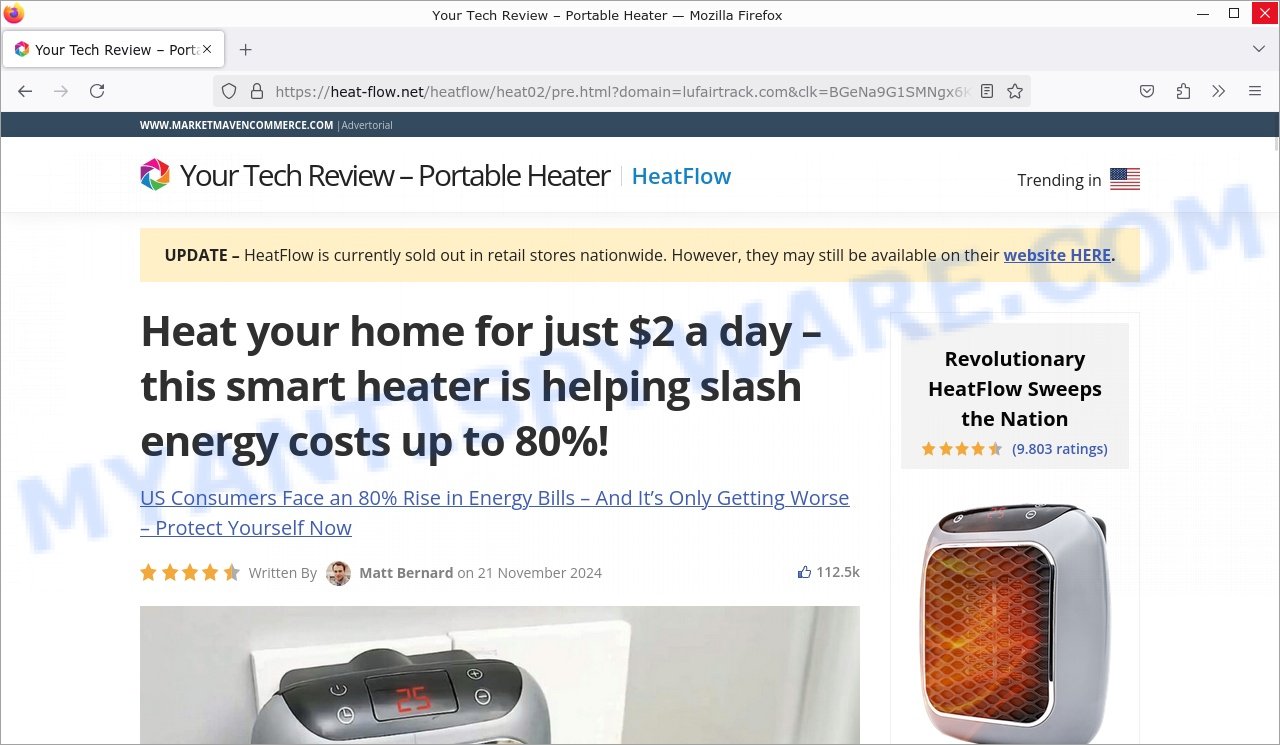
Key Red Flags:
- 🌐 Unrealistic Promises: The device is advertised to quickly heat rooms using revolutionary technology at a cost significantly lower than standard heaters, a claim that defies realistic expectations. The ads boast of heating a room in only two minutes and slashing energy costs up to 80%, which are highly suspicious claims.
- 💸 Excessive Markup: The product is sold at a price drastically higher than its actual value and manufacturing cost, evident from similar products available on platforms like AliExpress for a fraction of the price. Advertisements offer a 73% discount, indicating an artificially inflated original price.
- ⭐ Fabricated Reviews: It features overly positive reviews, likely fabricated, to artificially boost its perceived reliability and value. Advertisements include testimonials from customers claiming extreme satisfaction, which may not be genuine.
- ⚖️ Impossible Efficiency and Performance: The efficiency and rapid heating claims are entirely implausible and unsupported by any credible evidence. Claims of 99.8% energy efficiency are mentioned without any verification or technical backing.
- 🛠️ Overstated Technology: Claims of advanced technology and exceptional heating capabilities are grossly exaggerated and unverified. The website claims it uses a “ceramic convection” technique that can heat a medium-sized room in just 60 seconds.
- 🔒 Lack of Transparency: The use of a generic website with minimal contact information points to a lack of accountability and transparency. The site uses a mix of direct sales pitches and fake news-style articles to mislead consumers.
In summary, HeatFlow is definitely a scam. It employs outright deceptive marketing tactics, from making false performance promises to asserting baseless technological advancements. These red flags confirm that the product is designed to exploit consumers looking for cost-effective and efficient heating solutions. Customers are strongly advised to avoid this product and seek more trustworthy options.
🕵️♂️ How the ‘HeatFlow Heater’ Scam Works
The HeatFlow Heater is undoubtedly a scam. 🚨 It’s a type of fraud where a basic electric heater is sold as a revolutionary heating device with capabilities that are misleadingly exaggerated. 🔗 Step-by-Step Breakdown of the Scam:
🛒 Sourcing Low-Cost Products
The scammers source basic electric heaters at extremely low prices, often from bulk suppliers on platforms like AliExpress. These are ordinary heaters, misrepresented as capable of quickly warming up rooms within minutes—a physically impossible feat.
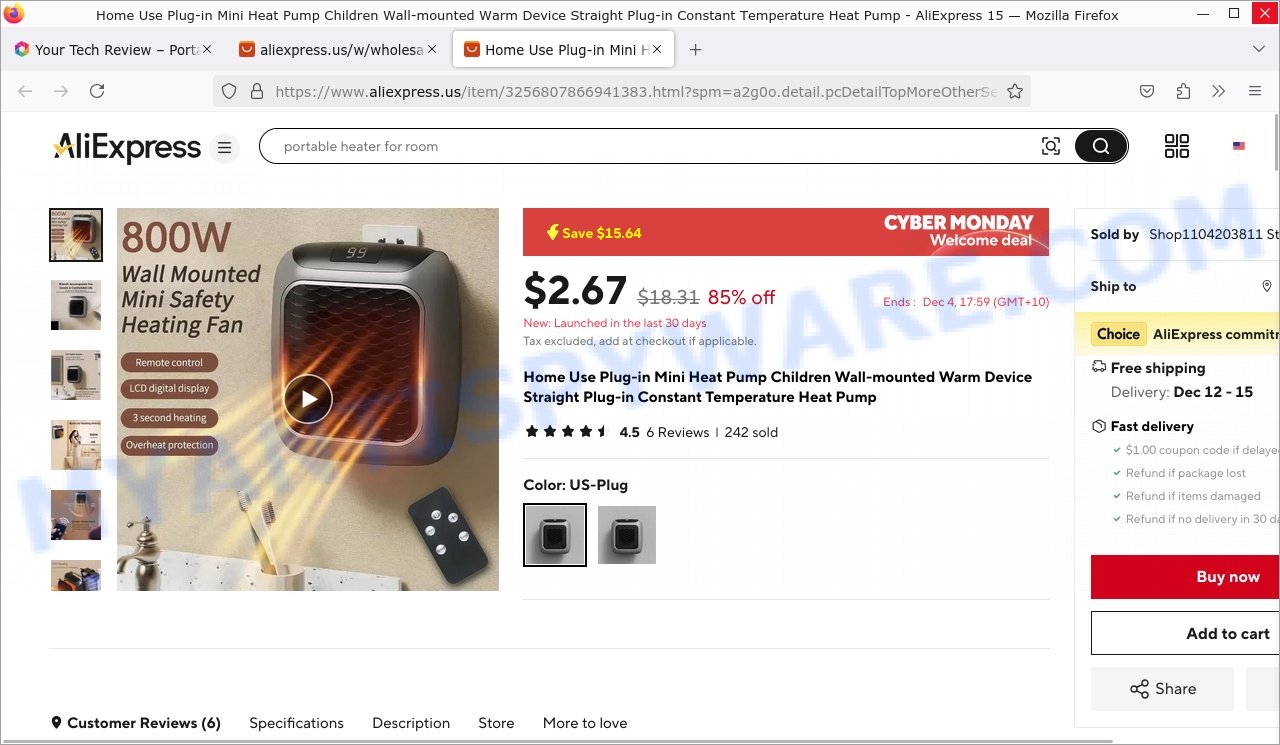
🕸️ Creating Misleading Websites
They create professional-looking but deceptive websites to sell these products. These sites offer minimal contact options and hide behind generic emails, providing no credible social media presence or reliable contact methods.
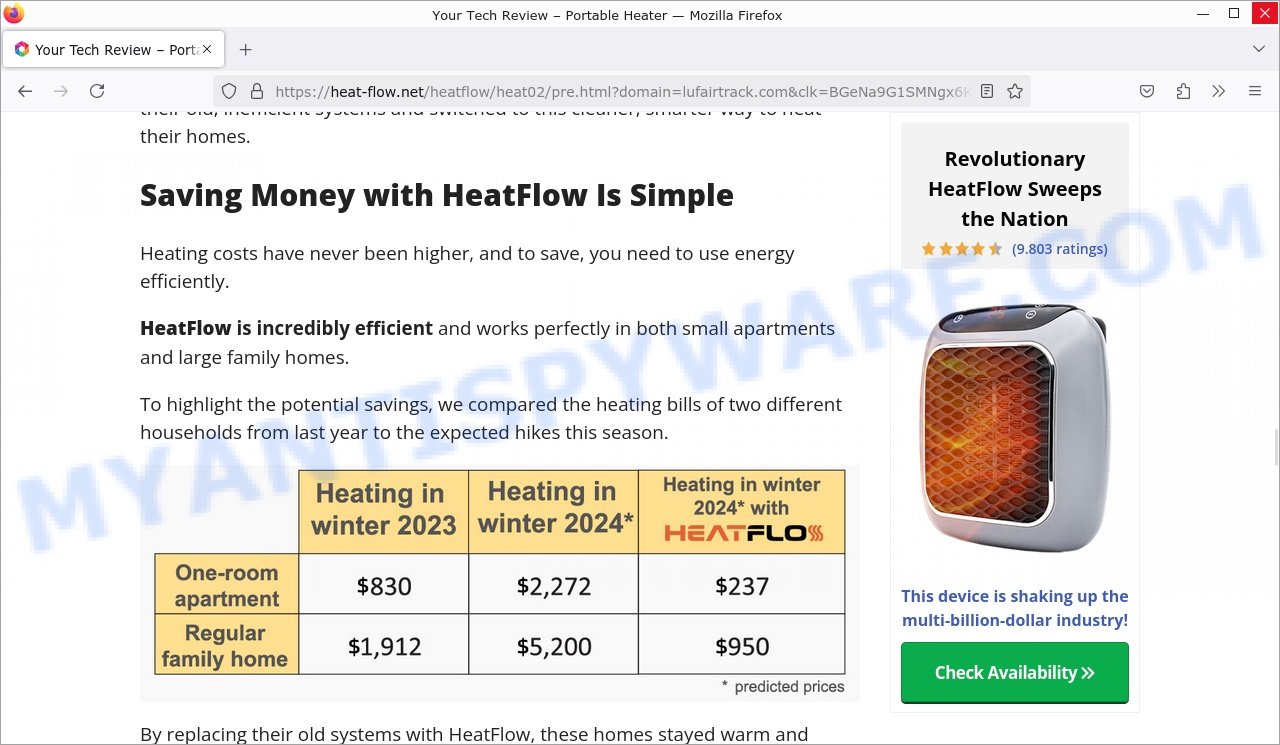
📢 Using Deceptive Advertising
They post attractive ads on social media platforms like Facebook and Instagram, using phrases like “Last Chance for 60% Off HeatFlow—Stock Is Running Low!”, “Rated 4.8/5 by over 3,000 happy customers” and “Transform Your Space into a Cozy Haven” to attract customers. They falsely advertise the heaters as advanced and capable of heating a room quickly and efficiently.
💼 Fabricating Technological Claims
The advertisements claim that the HeatFlow Heater can rapidly heat spaces and is equipped with cutting-edge technology, suggesting advanced features that are either exaggerated or non-existent.
💸 Promoting Unrealistic Discounts
Customers are enticed with significant discounts, showing a falsely inflated original price heavily reduced to create urgency. For example, an advertised regular price might be slashed to a ‘sale’ price, offering a massive discount.
🌟 Showcasing Fake Reviews
The websites display fraudulent customer reviews and testimonials. These reviews are overly positive, featuring high ratings, and include made-up success stories.
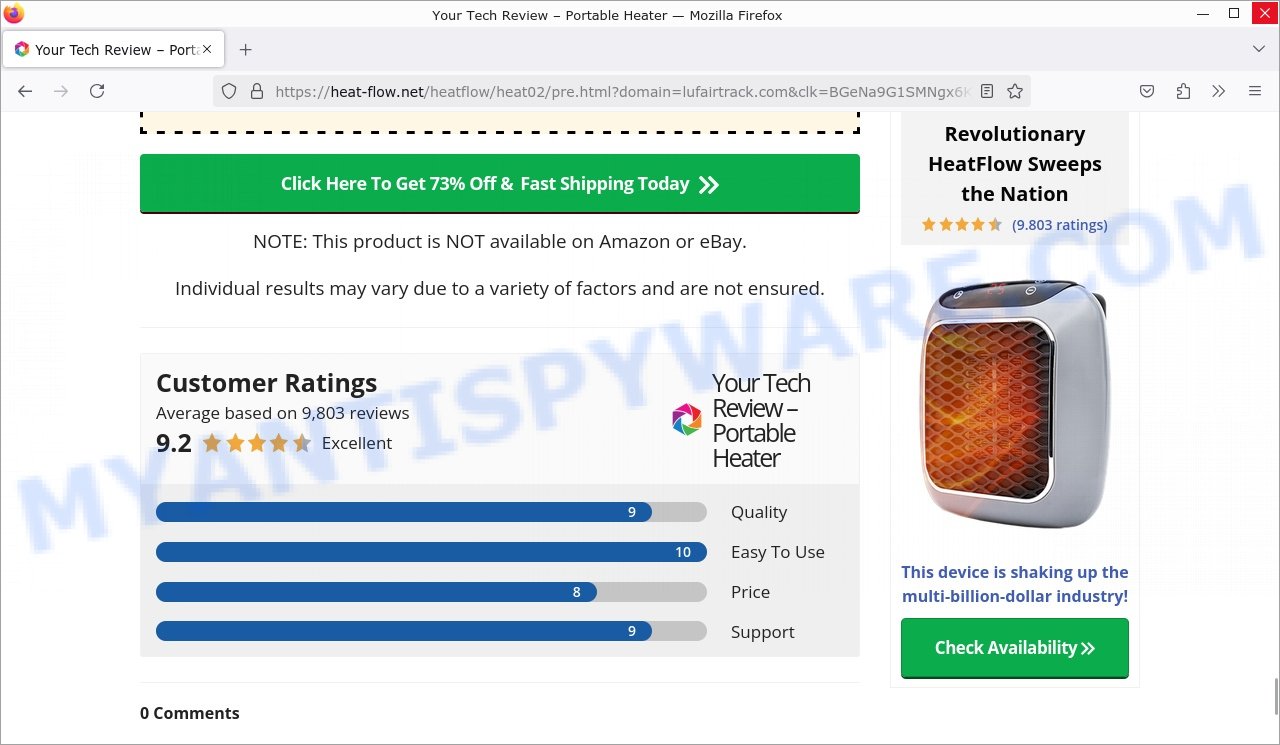
⚖️ Offering False Legal Assurances
The ads and website information misleadingly reassure customers of the legality and effectiveness of the device, despite its inability to perform as remarkably as advertised.
🛍️ Streamlining the Purchase Process
The purchasing process on these sites is made quick and easy, often requiring customers to pay upfront using methods that offer limited buyer protection.
🔁 Ignoring Return Policies
Despite promises of return policies and money-back guarantees, such commitments are rarely fulfilled. Customers face difficulties in returning the product or receiving a refund once they realize its true nature.
📦 Delivering Disappointing Products
Customers do receive an item, but it’s just a basic electric heater that falls short of the advertised advanced heating capabilities.
🚫 Providing Inadequate Customer Support
Post-purchase, customers seeking help or refunds often deal with poor customer support. The contact emails provided are either non-responsive or unhelpful, leaving customers frustrated and without recourse.
In summary, the HeatFlow Heater 🚫 scam deceives people into buying a basic product by falsely advertising it as a high-tech heating solution. The scammers use misleading websites, exaggerated claims, substantial discounts, and fabricated reviews to sell their product. Buyers end up with a simple electric heater that does not meet the advanced heating expectations, and they often struggle to receive effective support or a refund. This scam underscores the importance of being cautious and conducting thorough research before making online purchases of technology-related products.
🤔 Why Such Scams Are Possible
Quick Profit Motive
Scammers are in it for the quick buck. They don’t care about long-term consequences because they usually disappear before anyone catches on.
Limited Oversight on Ad Platforms
While social media websites have policies against scams, the sheer volume of ads makes it challenging to police every single one. Scammers take advantage of this gap to promote their fake products.
🧠 Human Psychology
Scammers know that people are looking for quick, easy solutions to their problems. The desire for an immediate fix can sometimes cloud judgment, making individuals more susceptible to scams.
⚖️ Lack of Legal Consequences
In many cases, these scammers operate across international borders, making legal pursuit complicated and unlikely. This reduces the risk for scammers, encouraging such fraudulent activities.
👤 Anonymity on the Internet
It’s easy for scammers to hide their identity online. A fake name, a throwaway email address, and they’re in business. This makes it hard to trace and take down these fraudulent schemes.
💡 Beware of Similar Devices
It’s not just the HeatFlow Heater you need to watch out for; there are other products claiming extraordinary benefits that often turn out to be scams. Here are some similar products to be wary of:
Electromagnetic Antifreeze Snow Removal
This device claims to use “advanced electromagnetic technology” to remove snow and ice effortlessly. Like the AEXZR, it employs scientific jargon to confuse and lure potential buyers, but there’s no substantial evidence to support its claims.
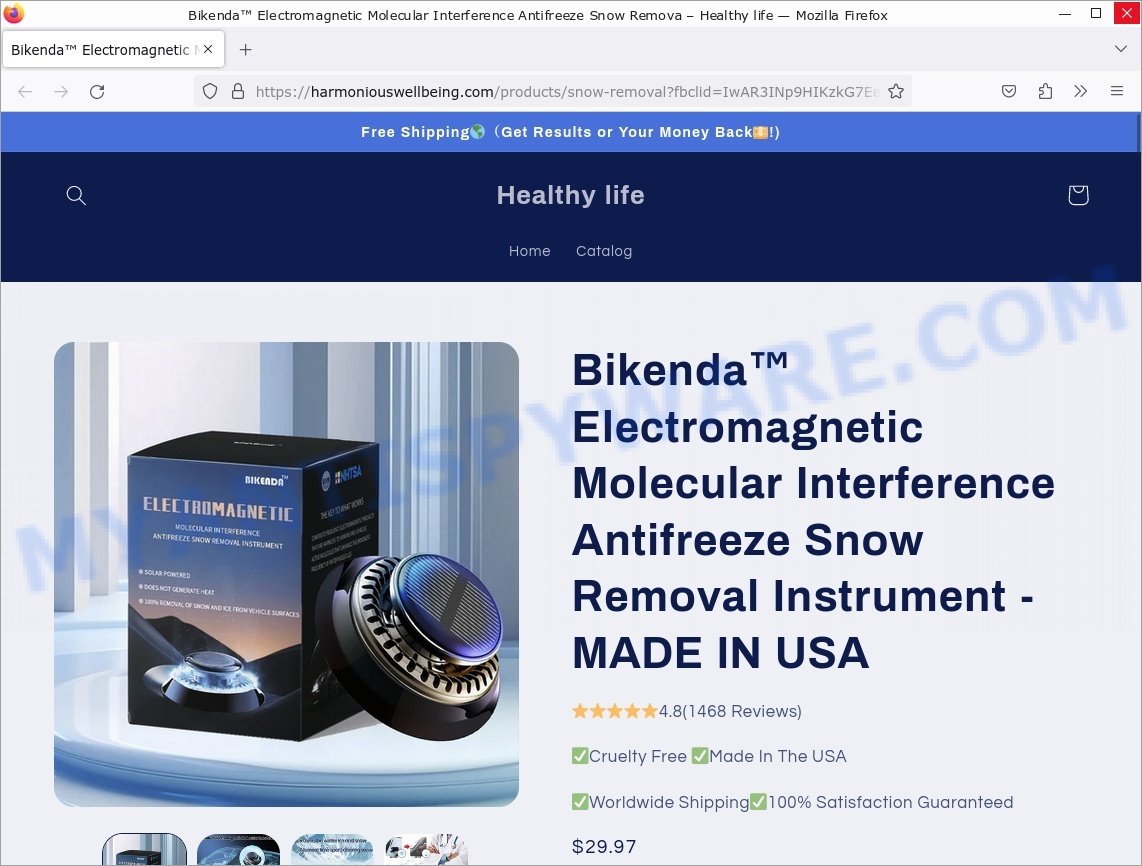
MileMax Fuel Saver
This product promises to drastically improve your car’s fuel efficiency using a “revolutionary chip”. It boasts a hassle-free installation and quick results, but there’s no verified data to back these claims. Plus, messing with your vehicle’s electronics can be risky and void your warranty.
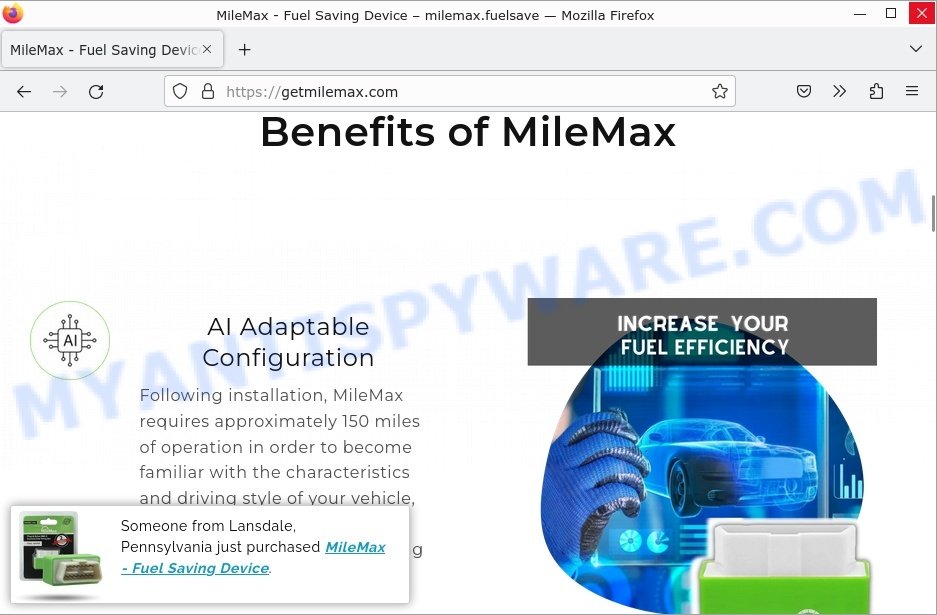
ChillWell Portable AC
This portable air conditioner claims to cool down your room in minutes using “rapid cooling technology”. It often comes with a flashy website and fake reviews to make it seem legitimate. However, similar devices have been found to be mere humidifiers or fans with no real cooling capabilities.
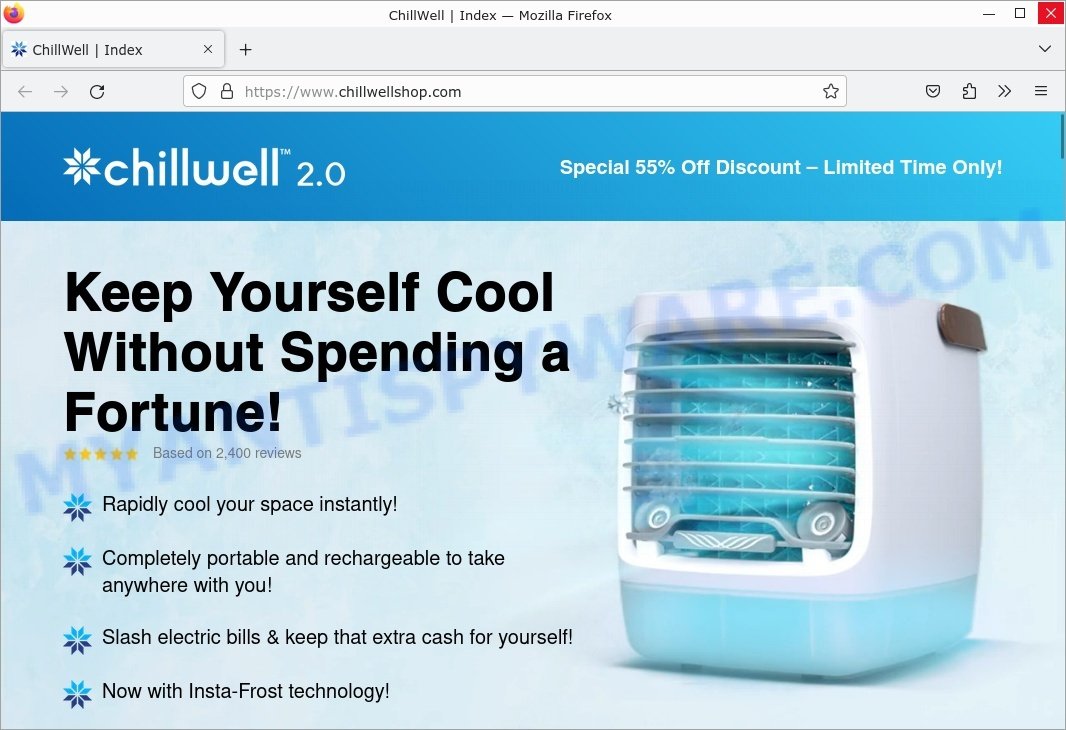
StopWatt
This device claims to reduce your electricity bill by optimizing your energy usage. It often comes with a money-back guarantee to appear more trustworthy. But consumers have reported either no change or an increase in their energy bills after using it.
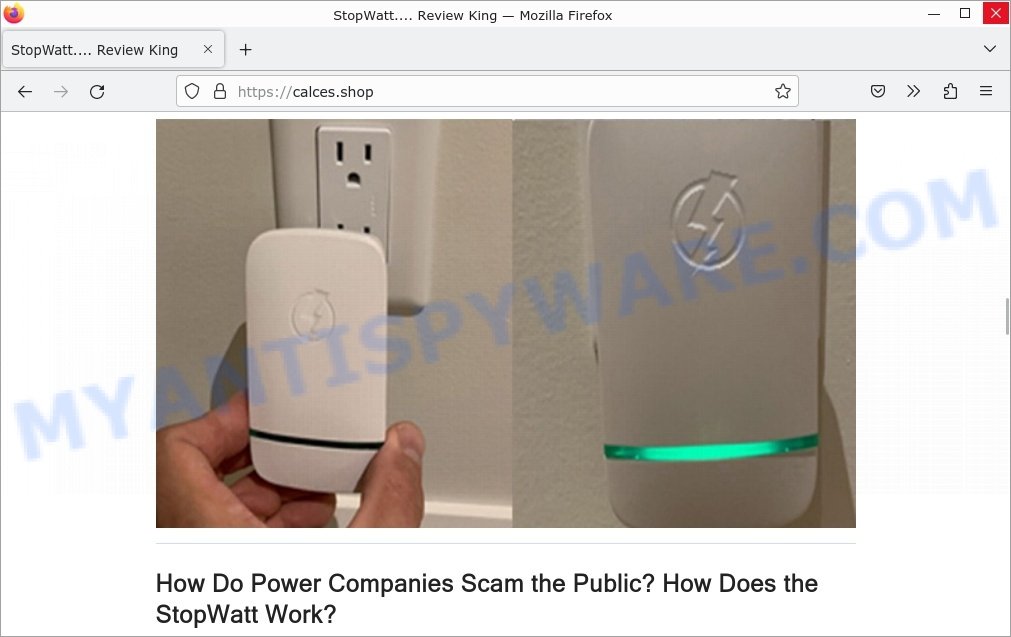
These products share common red flags:
🚩 False Science: They use scientific-sounding language that lacks credible backing.
🚩 Fake Reviews: Customer testimonials often seem scripted and too good to be true.
🚩 Pressure Tactics: Limited-time offers and countdown timers urge quick purchasing decisions.
🚩 Unclear Contact Information: They provide an email or an address often linked to fraudulent activities.
😱 What to Do If Scammed
If you find yourself ensnared by the HeatFlow Heater Device Scam, immediate action is crucial. Here’s what you should consider doing:
🛑 Stop Further Transactions
The first step is to halt any additional transactions that might be in process. Contact your bank or credit card provider and inform them that you’ve fallen victim to a scam. They can help by blocking the card or reversing any unauthorized transactions.
📞 Report the Fraud
File a report with your local police and provide all the available evidence, such as screenshots, emails, and website URLs. Additionally, report the scam to online portals like the Better Business Bureau (BBB) at www.bbb.org or the Federal Trade Commission (FTC) at reportfraud.ftc.gov. If you’re in another country, reach out to your national consumer protection agency.
💻 Take Screenshots
Before the scam website gets taken down or changes, make sure to capture screenshots of your transactions and communications. These can serve as evidence if you decide to pursue legal action.
⚖️ Consult Legal Advice
Speak to a legal advisor about your situation. While pursuing legal action may be time-consuming and costly, it could be a possible avenue for recovering your lost money.
📢 Share Your Experience
Use social media platforms to share your experience and warn others about the scam. Your story could prevent someone else from falling victim to the same or similar scams.
Summary Table
| Factor | Observations | Impact on Legitimacy |
|---|---|---|
| Product Description | Branded as “HeatFlow”. Claims to heat rooms in just two minutes, which is unrealistic for a small, portable heater. | Negative (Unrealistic and unverified claims) |
| Reviews | Hosts highly positive reviews that seem manufactured. No evidence of independent verification or reputable external reviews exists. | Negative (Lack of authentic, verified reviews) |
| Marketing Channels | Extensively marketed on social media and other platforms, emphasizing unmatched heating efficiency and substantial energy savings, accompanied by deceptive discounts and pressure tactics. | Negative (Aggressive and deceptive marketing strategies) |
| Price | Priced at $49.99, drastically higher than similar heaters available on AliExpress for just a few dollars, indicating a major price markup. | Negative (Significant markup above market value) |
| Real Functionality | Marketed as capable of efficiently heating large spaces quickly, which is misleading given its similarity to standard electric heaters. | Negative (Misrepresentation of product capabilities) |
| Company Contacts | Provides basic contact methods such as email and phone number, but detailed support information and proof of responsive customer service are lacking. | Negative (Poor customer support and opaque business practices) |
| Power Source | Advertised to use advanced energy-efficient heating technology without providing detailed evidence or specifications to substantiate these claims. | Negative (Unsupported claims about energy efficiency and technology) |
| Safety Claims | Promotes standard safety features like tip-over and overheat protection as advanced, without specific verification for this product. | Negative (Common safety features presented as exceptional without proof) |
Conclusion
The HeatFlow Heater is a scam, promising more than it delivers. It boasts of high-tech features that don’t match reality, uses customer reviews that seem scripted and unnatural, and provides vague and unreliable contact information for the company. These are all classic warning signs of a deceptive product.
Bottom Line: Steer clear of this heater. Always research thoroughly before purchasing, especially for items claiming advanced technology at prices that don’t make sense. 🛡️
Stay sharp and think critically; if an offer appears too perfect or the details seem unclear or false, it’s probably a scam. 🤔















